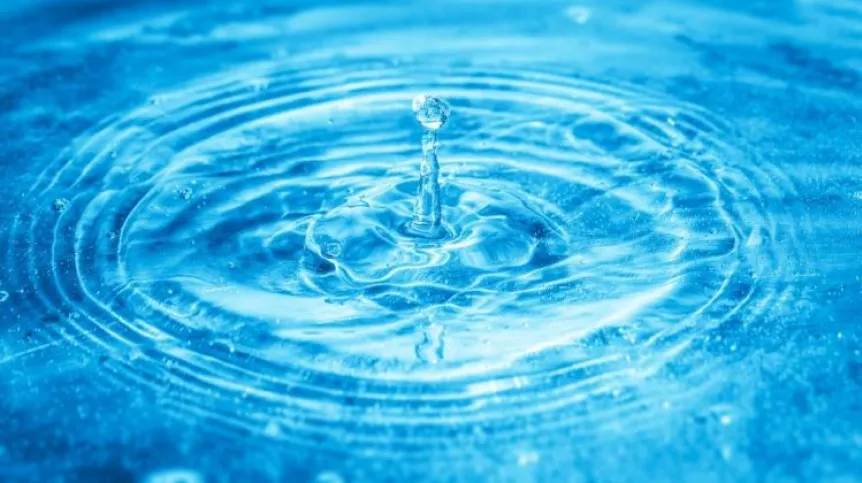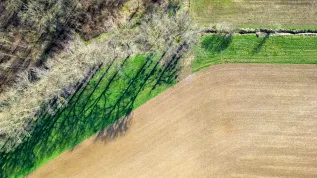
Although it is expected that in the future there will be more water in Poland due to climate change, there could be shortages at critical moments, for example in spring, says Prof. Renata Romanowicz from the Institute of Geophysics of the Polish Academy of Sciences.
According to scientists` forecasts, global warming will have a major impact on the water cycle - for example, in Poland, higher average air temperatures are expected to be accompanied by more frequent rainfall. But Prof. Renata Romanowicz, a hydrologist from the Institute of Geophysics PAS, warns that this does not necessarily mean that rains will fall when water is needed most.
"We expect major seasonal changes in the occurrence of water - and such changes have a huge impact, for example, on agriculture" - explains Prof. Romanowicz.
In our climate zone, the amount of available water is also strongly affected by snowfall - and its amount is getting smaller. Snow is an important element of the whole system, performing a different function than rain. "Snow melts slowly, so the water slowly penetrates the soil. In the spring, we use the water stored in the soil during the winter" - the researcher says.
According to Prof. Romanowicz, the impact of relatively small snowfall on agriculture is already observed today. At the end of April, the Institute of Soil Science and Plant Cultivation warned that due to small rainfall in April, "a serious water deficit" occurred in many regions of the country.
"Drought is so dangerous for farmers at this moment, because low current rainfall coincides with low water content in the soil, caused by a small snowfall in the winter in northern and central Poland" - the hydrologist explains.
She says that this is not a new situation. "In 2010 we had large floods, but since then there have been smaller or larger water shortages" - she reminds.
"This is a growing problem because our water resources are rather small. Poland has only two major rivers, flowing from the south to the north: the Vistula and the Oder, and there are no large reservoirs that could collect water. Local rains, even heavy ones, are not able to increase water resources in the entire country" - the researcher adds.
Professor Romanowicz emphasises that changes in water availability affect not only man and his activities, but also ecology and biodiversity. "The authors of a recent UN report alert that millions of animals and plants are threatened with extinction - more than ever before in history" - she reminds.
"Many of these species live in an aquatic environment or in its immediate vicinity. They are therefore very sensitive to changes in water conditions, such as drainage of wetlands or major seasonal changes" - the hydrologist emphasises.
She adds that it is necessary to develop new methods of water resources management that will increase our resistance to drought. "We need to react in a thoughtful manner: if we only irrigate the soil, we will simultaneously reduce the resources of groundwater used for irrigation. Our entire water management has to adapt to both climate change and the increased demand for water associated with the urbanization process" - Prof. Romanowicz says.
PAP - Science in Poland, Katarzyna Florencka
kflo/ zan/ kap/
tr. RL













